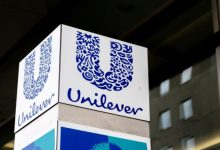Now Unilever puts the squeeze on agency fees with move to ‘zero-based’ budgeting
Everyone’s at it: reducing (or trying to) the amount they spend on agency fees.


Zero-based budgeting is favoured by private equity giant 3G which owns Kraft Heinz, among others. Heinz caused controversy in the UK recently by offering payment terms of 97 days to its agencies.
Unilever spends nearly $9bn on marketing to generate $58bn of sales, which sounds fair enough. But, in 2014, agency and other creative costs accounted for 22 per cent of the $9bn. In 2011 it was an eyebrow raising 30 per cent.
Presumably, though, it gets what it pays for. Clients like Unilever now want a presence in all sorts of media that were unheard of five years ago plus they want the highest creative standards. Last year its ad budget rose by 12 per cent in constant currency terms despite the beginnings of the crackdown.
Zero-based budgeting is the nuclear solution to this. Is forcing managers to undertake this dreary process the best way to get the best out of them?
It’s not hard to imagine what people like WPP’s Sir Martin Sorrell make of this – Unilever is a big WPP client. Sorrell regularly bemoans the reluctance of big companies to invest in brand building. If he has a cat he’ll be kicking it.










Hi Stephen – interesting move from Unilever. My immediate thought is that zero is not a budget nor is it a margin.
It initially looks like Unilever, and indeed other brands who employ a similar model, are throwing their weight around – confident they can secure reduced budgets purely because of their reputation and the knowledge that creative agencies will not want to lose them as a client. It reminds me of comments made late last year by the global CMO at Mars where he criticised brands for keeping agencies in “creative imprisonment”. Primarily – not paying agencies enough so they don’t make a good profit, can’t recruit top talent and are ultimately stifled when it comes to developing top work.
However, looking a bit deeper and it actually presents an interesting opportunity for agencies to better understand their operations. If agencies have a strong grasp on where profit is coming from and which areas are over/under resourced then they also know where they can be flexible, potentially bending when clients push to cut costs. Finding this middle ground allows them to maintain them as a client while still maintaining profitability. I am certainly not advocating becoming yes men and cutting costs to the detriment of the wider agency. But as they say – knowledge is power – and having better insight into agency operations means you are better placed to make decisions without sacrificing profits.
Another benefit of better insight into agency operations is that when you truly understand the profitability of each client you can make the tough decisions if the brand trade-off is not enough. This provides more of a balance of power, ensuring agencies don’t spend their whole time on the back foot with clients calling the shots.